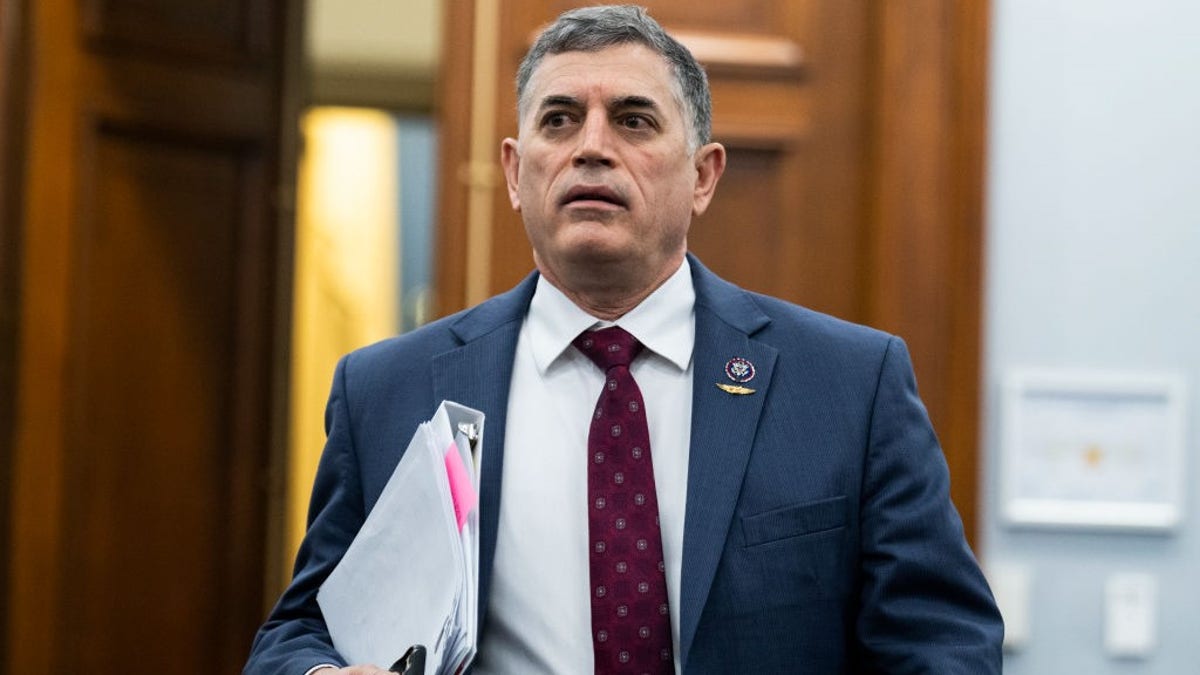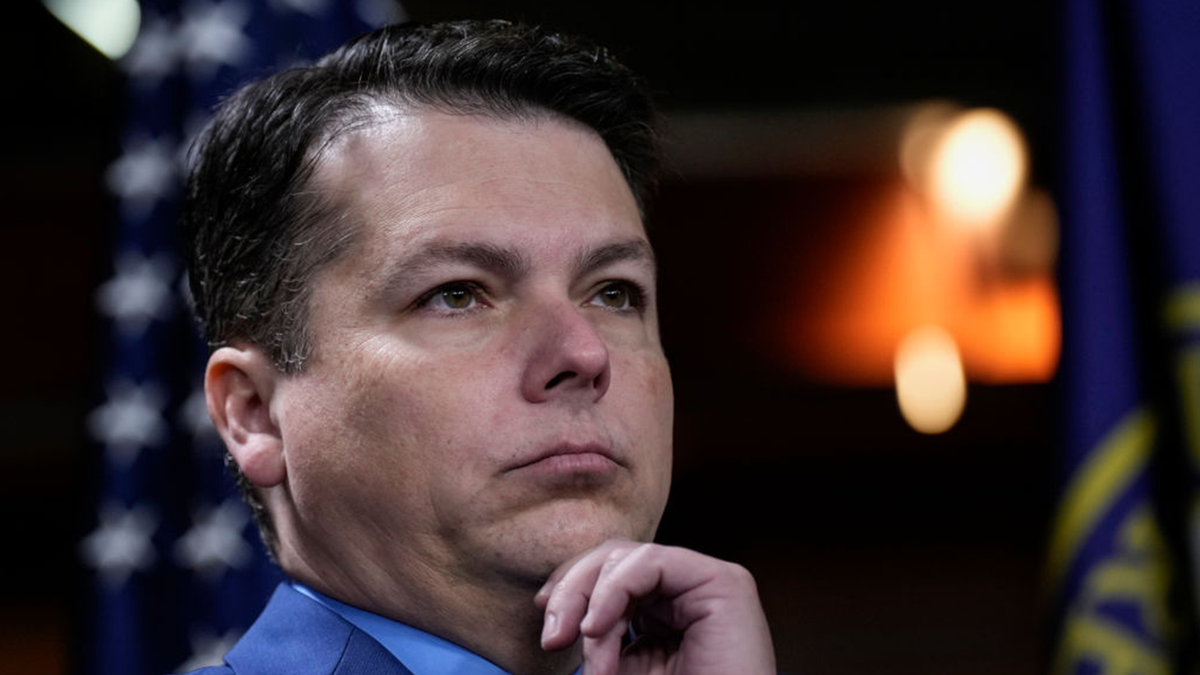Politics
Video: Ken Paxton Pleads Not Guilty to Corruption Accusations

new video loaded: Ken Paxton Pleads Not Guilty to Corruption Accusations
transcript
transcript
Ken Paxton Pleads Not Guilty to Corruption Accusations
Ken Paxton, the Republican attorney general of Texas, is facing trial on 16 articles of impeachment related to accusations of corruption and abuse of office.
-
“Article 20, abuse of public trust while holding office as attorney general, Warren Kenneth Paxton used, misused or failed to use his official powers in a manner calculated to subvert the lawful operation of the government of the state of Texas, and obstruct the fair and impartial administration of justice, thereby bringing the Office of Attorney General into scandal and disrepute to the prejudice of public confidence in the government of this state, as shown by the acts described in one or more articles.” “Attorney General Paxton, how do you plead?” “Your honor, the attorney general is innocent and we plead not guilty.”
Recent episodes in U.S. & Politics

Politics
R.F.K. Jr., Trump’s Health Secretary Pick, Is Set to Meet with Lawmakers

Robert F. Kennedy Jr., President-elect Donald J. Trump’s choice for health secretary, is set on Monday to begin a series of meetings with Republican lawmakers on Capitol Hill to make his case for a spot in Mr. Trump’s cabinet.
Mr. Kennedy will almost certainly be questioned about his longtime anti-vaccine advocacy. He has said that he does not want to take away access to vaccines, but has repeatedly questioned their safety, trying to link them to a rise in autism in children — a debunked theory.
On Friday, The New York Times also reported that a lawyer helping Mr. Kennedy vet appointees for the incoming Trump administration had petitioned the government to revoke its approval of the polio vaccine.
Senator Mitch McConnell, the Republican leader and a survivor of polio, could be a key vote in Mr. Kennedy’s confirmation bid. In a statement Friday that did not name Mr. Kennedy, Mr. McConnell suggested that the petition could jeopardize his confirmation.
“Anyone seeking the Senate’s consent to serve in the incoming administration would do well to steer clear of even the appearance of association with such efforts,” Mr. McConnell said.
Once nominated by a president, candidates for top-level positions in an administration must be confirmed by the Senate. Republicans will control the chamber, but their 53-47 majority means they can lose only a few votes and still confirm Mr. Trump’s picks.
Mr. Kennedy is set to meet with Senator Lisa Murkowski of Alaska, a more moderate Republican, and some physicians in the party’s conference, including Senator Roger Marshall of Kansas.
Mr. Kennedy, who ran for president as a Democrat and independent before dropping out of the race and endorsing Mr. Trump, will probably also be asked about views on abortion access.
Former Vice President Mike Pence has called on Republican senators to reject Mr. Kennedy, citing his record of support for abortion rights.
“On behalf of tens of millions of pro-life Americans, I respectfully urge Senate Republicans to reject this nomination and give the American people a leader who will respect the sanctity of life as secretary of Health and Human Services,” Mr. Pence said in a statement.
Politics
Trump allies push for more White House control over Congress' purse strings

House GOP allies of President-elect Donald Trump are pushing for him to have greater control over Congress’ annual government spending process next year.
Rep. Andrew Clyde, R-Ga., is introducing a bill on Monday that would repeal a measure that forces the president to direct the federal government to spend the full amount of money allocated by Congress every year.
Clyde told Fox News Digital on Thursday that he also plans to introduce the bill in the next Congress, when Republicans control the House, Senate and White House – and that the issue is already being discussed in Trump’s circle.
“That was certainly a topic that was brought up” with Vivek Ramaswamy and Elon Musk when they were on Capitol Hill earlier this month to discuss the Department of Government Efficiency, Clyde said.
REPUBLICANS GIVE DETAILS FROM CLOSED-DOOR MEETINGS WITH DOGE’S MUSK, RAMASWAMY
Some Republicans want to give President-elect Donald Trump more say over the Congressional appropriations process. (Chris Unger/Zuffa LLC)
“They’re in favor of it, because how can you be efficient and not have the ability to reduce spending? You simply can’t.”
He also told a small group of reporters earlier this month that incoming Trump Office Of Management and Budget Director Russell Vought “is very much in favor of this.”
The Impoundment Control Act of 1974 was passed during the Nixon administration and aimed at stopping the president from having unilateral say over government spending.
Currently, a president must get congressional approval to rescind any funding that has been allocated for a certain year. The funds in question can be held for up to 45 days while the request gets processed.
“I think the authority is very, very important for the president to exercise,” Clyde said. “Ever since Congress introduced that act, you’ve seen spending literally spiraling upwards. And that’s just not good for our country.”
DANIEL PENNY TO BE TAPPED FOR CONGRESSIONAL GOLD MEDAL BY HOUSE GOP LAWMAKER

Rep. Andrew Clyde, R-Ga., is leading the charge to repeal the Impoundment Control Act. (Tom Williams/CQ-Roll Call, Inc via Getty Images)
Clyde’s bill would roll back the Impoundment Control Act. A corresponding bill is being introduced in the Senate by Sen. Mike Lee, R-Utah.
Clyde said over a dozen House Republicans are backing his bill as well.
Musk and Ramaswamy advocated for Trump to have greater authority to rescind funding in an op-ed published by the Wall Street Journal last month, after the president-elect tapped them to lead an advisory panel on cutting government waste.
The Georgia Republican acknowledged that the bill has long odds in the current Democrat-controlled Senate and with just one week left in the congressional term, but said he would “definitely” introduce it in the next Congress.
MIKE JOHNSON WINS REPUBLICAN SUPPORT TO BE HOUSE SPEAKER AGAIN AFTER TRUMP ENDORSEMENT

Rep. Brendan Boyle, D-Pa., the top Democrat on the House Budget Committee, is against the idea. (Getty Images)
He described Monday’s introduction as “putting a flag in the ground, saying ‘Hey, this is an authority that the president should be able to use in an unhindered fashion, and we are going to help.’”
However, the issue is likely to fall along partisan lines. Rep. Brendan Boyle, D-Pa., the top Democrat on the House Budget Committee, responded to Musk and Ramaswamy’s op-ed by calling their ideas “as idiotic as they are dangerous.”
“Unilaterally slashing funds that have been lawfully appropriated by the people’s elected representatives in Congress would be a devastating power grab that undermines our economy and puts families and communities at risk,” Boyle said in a statement.
Politics
Trump said he would revoke birthright citizenship. It hasn't worked in the past

WASHINGTON — President-elect Donald Trump has promised to end the right to citizenship for babies born in the U.S. to undocumented parents shortly after he takes office next month.
In an interview earlier this month with NBC’s “Meet the Press,” Trump said he would attempt to do so through executive action.
“Yes, we’re going to end that, because it’s ridiculous,” Trump said.
But getting rid of birthright citizenship, a principle that can be traced in the U.S. to the end of slavery and the 14th Amendment of 1868, is highly unlikely. Here’s why:
What is birthright citizenship?
There are two types of citizenship recognized by the U.S. government: one based on descent, and another based on birthplace.
The first type grants U.S. citizenship to children born abroad to at least one U.S. citizen parent. The other guarantees that right to anyone born on U.S. soil, except the children of foreign diplomats.
The 14th Amendment grants citizenship to anyone born in the U.S. It states: “All persons born or naturalized in the United States, and subject to the jurisdiction thereof, are citizens of the United States.”
Thirty years after its ratification, the Supreme Court ruled that birthright citizenship applied to those born in the U.S. to immigrant parents. It has been interpreted to apply regardless of a parent’s legal status.
The case centered on Wong Kim Ark, who was born in San Francisco in 1873 to Chinese parents who were lawful permanent residents. He left the U.S. temporarily at age 21 to visit his parents, who had by then moved back to China. But upon his return, he was denied entry under the Chinese Exclusion Act on the ground that he was not a citizen. The nation’s highest court ruled that the 14th Amendment made Wong a citizen.
How does the U.S. compare to the rest of the world?
During the NBC interview, Trump erroneously said the U.S. is “the only country that has it.” In fact, more than 30 countries recognize birthright citizenship, most of them in the Western Hemisphere. Most countries around the world recognize citizenship by descent.
Sam Erman, a law professor at the University of Michigan who studies citizenship, said that the U.S. modeling birthright citizenship is part of the reason more countries have it now.
“If you have it based on descent, then you can end up with people who spend their whole lives in your country and don’t get to be members — and their children, and their children’s children,” Erman said.
Birthright citizenship, he said, “works as a way to ensure that the people being governed in a place are actually part of the place.”
Could Trump end it?
In a post last year on his campaign website, Trump wrote that he would issue an executive order his first day as president, directing federal agencies to “require that at least one parent be a U.S. citizen or lawful permanent resident for their future children to become automatic U.S. citizens.”
He said the order would clarify that children of undocumented immigrants “should not be issued passports, Social Security numbers, or be eligible for certain taxpayer funded welfare benefits.”
On NBC, Trump said he would end birthright citizenship “if we can” through executive action.
Legal scholars broadly agree it is not within the president’s executive power to end birthright citizenship, leaving the courts or a constitutional amendment as the only ways to achieve a change.
Amending the Constitution is a rigorous process with a high bar that would require the approval of two-thirds of both chambers of Congress and ratification by three-fourths of each state legislature or state convention.
Targeting “anchor babies” and “birth tourism,” Trump planned to sign an executive order that would end birthright citizenship for the children of immigrants during his first term. But he skirted the issue by instead issuing a rule to deny pregnant women visas if they appeared to be coming to the U.S. primarily to give birth.
Republicans have also introduced bills in Congress to end birthright citizenship, though none have passed. In September, Sen. Lindsey Graham (R-S.C.) introduced the Birthright Citizenship Act of 2024, which would end birthright citizenship for the children of undocumented immigrants and tourists.
After Trump’s recent comments, Graham said he is also working on a constitutional amendment to end the practice, which he has vocally opposed for decades.
“One of the most valuable commodities in the world is American citizenship,” Graham said during a news conference introducing his bill. “I can understand why almost everybody in the world would want to come to America and be a citizen. But we’ve got to have an orderly process when it comes to granting American citizenship. We have to have a process that is not exploited.”
Graham has said the Supreme Court probably would take up the case, noting that there has never been a ruling by the high court involving cases of birthright citizenship in which the parents are undocumented or are on temporary visas.
But Erman, the Michigan law professor, said it’s unlikely that even the conservative-leaning court would move to end birthright citizenship.
“Wong Kim Ark was decided by a court that was quite anti-minority and quite conservative, and even there the text and the history is just really clear,” he said. “If Wong Kim Ark could win in 1898, it feels like the precedent should be able to hold in 2024.”
What opposition would Trump face?
Any move to end birthright citizenship is sure to face legal challenges.
“Citizenship is both a bundle of rights and a form of belonging. Saying these people who are citizens are not really Americans I think does a lot of damage,” Erman said.
Migration experts have warned that repealing birthright citizenship would cause the number of people in the U.S. illegally to skyrocket. Democratic lawmakers have voiced their opposition after Trump’s recent comments.
“That concept of birthright citizenship is sort of like the backbone of America. It is very much a part of the history of our nation and it should continue as such,” Rep. Adriano Espaillat (D-N.Y.) said on CNN.
Even some Republicans have disagreed with Trump. Then-House Speaker Paul Ryan broke with Trump in 2018 when he said the president could not end birthright citizenship by executive order.
“As a conservative, I’m a believer in following the plain text of the Constitution, and I think in this case the 14th Amendment is pretty clear, and that would involve a very, very lengthy constitutional process,” he said. “But where we obviously totally agree with the president is getting at the root issue here, which is unchecked illegal immigration.”
-

 Technology1 week ago
Technology1 week agoStruggling to hear TV dialogue? Try these simple fixes
-

 Business1 week ago
Business1 week agoOpenAI's controversial Sora is finally launching today. Will it truly disrupt Hollywood?
-

 Politics3 days ago
Politics3 days agoCanadian premier threatens to cut off energy imports to US if Trump imposes tariff on country
-
/cdn.vox-cdn.com/uploads/chorus_asset/file/25782636/247422_ChatGPT_anniversary_CVirginia.jpg)
/cdn.vox-cdn.com/uploads/chorus_asset/file/25782636/247422_ChatGPT_anniversary_CVirginia.jpg) Technology4 days ago
Technology4 days agoInside the launch — and future — of ChatGPT
-
/cdn.vox-cdn.com/uploads/chorus_asset/file/25789444/1258459915.jpg)
/cdn.vox-cdn.com/uploads/chorus_asset/file/25789444/1258459915.jpg) Technology3 days ago
Technology3 days agoOpenAI cofounder Ilya Sutskever says the way AI is built is about to change
-

 Politics3 days ago
Politics3 days agoU.S. Supreme Court will decide if oil industry may sue to block California's zero-emissions goal
-
/cdn.vox-cdn.com/uploads/chorus_asset/file/25546252/STK169_Mark_Zuckerburg_CVIRGINIA_D.jpg)
/cdn.vox-cdn.com/uploads/chorus_asset/file/25546252/STK169_Mark_Zuckerburg_CVIRGINIA_D.jpg) Technology3 days ago
Technology3 days agoMeta asks the US government to block OpenAI’s switch to a for-profit
-

 Politics4 days ago
Politics4 days agoConservative group debuts major ad buy in key senators' states as 'soft appeal' for Hegseth, Gabbard, Patel
















